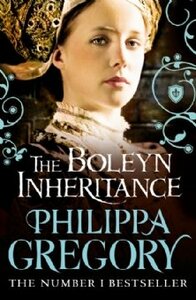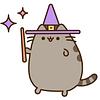Take a photo of a barcode or cover
adventurous
challenging
dark
emotional
sad
tense
slow-paced
Plot or Character Driven:
A mix
Strong character development:
Complicated
Loveable characters:
Yes
Diverse cast of characters:
Yes
Flaws of characters a main focus:
Yes
Far more than just a sequel to the Other Boleyn Girl, the Boleyn Inheritance strives to tell the story of three powerful women in the English court, all diverse in their fates and ideals. Anne of Cleaves is the fourth wife to Henry VIII, a lost lamb in a English world, adjusting to the foreign world she is unmercifully thrown in. Jane Boleyn, or Lady Rochford, is the wife of George from the Other Boleyn Girl, a great gossip and plotter at court. And lastly we have Katherine Howard, a new Howard maid sent in to seduce the king.
The story uses a combined narrative of all three women, slipping in easily from the naive and greedy voice of Katherine Howard to the more anguished and scheming voice of Jane Boleyn, and lastly to Anne of Cleave's gentler yet mature tone. I love how much stronger the women are in this chapter, so much more sincere or defined in terms of personality. Yet, all have their deep obvious weaknesses and none were as perfect, as desirable and intriguing as Anne Boleyn.
The novel focuses a lot more on inner turmoil instead of only hot blooded seductions, a contrast to the previous novel - which I do like. In particular, Jane Boleyn obsesses frequently about the young and beautiful George and Anne Boleyn, gone from the world. She reminisces about their perfection, their desirable smiles, their capricious attitudes. However, Jane struggles with that same sense of loss, and more as she was the only one that survived. The king is old, and romance has lost its charm now, so emotion and comfort, power and independence are much more prevalent themes in this book.
But as I read more and more into Gregory's writing, I see the same things I have disliked over and over again. I am repeatedly reminded that women are worthless pawns in the world, cast off only to win favors with the rich yet easily disposed of when failing to do so. Katherine Howard, and even Jane Boleyn or Anne of Cleaves (at first!) show the same reluctant and pathetic attitudes as Mary Boleyn in The Other Boleyn Girl, they let themselves be controlled by men - their lives dictated by fathers, uncles, and husbands. I admired Anne of Cleaves at the end for seeking her true self, and Anne Boleyn's fiery self possessed manner; they were breaths of fresh air in such novels.
Also, Gregory's writing is awfully bland at points. She may excel at romance, or even at dialogue and actions but she utterly fails at description. Her descriptive writing, modifiers and imagery lacks severely - weakening the appeal of the Tudor court and the spirit of the age. The book seems quite simple in language as well, and the words repetitive and often crude. I think I had an unrealistic expectation of fanciful metaphors and imagery painted on velvet curtains for this novel, but I do feel if Gregory's writing was a bit more descriptive, the rating would be higher.
I don't really think I'll read another Gregory novel, but we'll see. However, I enjoyed the Boleyn Inheritance far more than the Other Boleyn Girl, and perhaps if I'd somehow read it first, it would be a great read to me. I don't really recommend this novel if you've disliked the Other Boleyn Girl, the novels are truly not dynamically different.
The story uses a combined narrative of all three women, slipping in easily from the naive and greedy voice of Katherine Howard to the more anguished and scheming voice of Jane Boleyn, and lastly to Anne of Cleave's gentler yet mature tone. I love how much stronger the women are in this chapter, so much more sincere or defined in terms of personality. Yet, all have their deep obvious weaknesses and none were as perfect, as desirable and intriguing as Anne Boleyn.
The novel focuses a lot more on inner turmoil instead of only hot blooded seductions, a contrast to the previous novel - which I do like. In particular, Jane Boleyn obsesses frequently about the young and beautiful George and Anne Boleyn, gone from the world. She reminisces about their perfection, their desirable smiles, their capricious attitudes. However, Jane struggles with that same sense of loss, and more as she was the only one that survived. The king is old, and romance has lost its charm now, so emotion and comfort, power and independence are much more prevalent themes in this book.
But as I read more and more into Gregory's writing, I see the same things I have disliked over and over again. I am repeatedly reminded that women are worthless pawns in the world, cast off only to win favors with the rich yet easily disposed of when failing to do so. Katherine Howard, and even Jane Boleyn or Anne of Cleaves (at first!) show the same reluctant and pathetic attitudes as Mary Boleyn in The Other Boleyn Girl, they let themselves be controlled by men - their lives dictated by fathers, uncles, and husbands. I admired Anne of Cleaves at the end for seeking her true self, and Anne Boleyn's fiery self possessed manner; they were breaths of fresh air in such novels.
Also, Gregory's writing is awfully bland at points. She may excel at romance, or even at dialogue and actions but she utterly fails at description. Her descriptive writing, modifiers and imagery lacks severely - weakening the appeal of the Tudor court and the spirit of the age. The book seems quite simple in language as well, and the words repetitive and often crude. I think I had an unrealistic expectation of fanciful metaphors and imagery painted on velvet curtains for this novel, but I do feel if Gregory's writing was a bit more descriptive, the rating would be higher.
I don't really think I'll read another Gregory novel, but we'll see. However, I enjoyed the Boleyn Inheritance far more than the Other Boleyn Girl, and perhaps if I'd somehow read it first, it would be a great read to me. I don't really recommend this novel if you've disliked the Other Boleyn Girl, the novels are truly not dynamically different.
Loved all the drama! This book really helped put an identity to the two queens you don't hear much about. I liked how it was told from three different views, really helped to paint a bigger picture.
Sequel to The Other Boleyn Girl. just as good as the first book.
I picked this up immediately after reading [b: The Other Boleyn Girl|37470|The Other Boleyn Girl (The Plantagenet and Tudor Novels, #9)|Philippa Gregory|http://images.gr-assets.com/books/1355932638s/37470.jpg|3248536], unable to slake my thirst for more of Henry VIII and his court. I was skeptical, as all should be when embarking on a sequel of any sort, but was pleasantly surprised. Divided between three narrators, the evil and half-mad Jane Boleyn, the ill-fated Katherine Howard, and the strong survivor, Anne of Cleves, the reader gets a new perspective on the fourth and fifth wives of Henry VIII. Indeed, though I always knew that Anne of Cleves was the wife who was put aside, I never knew that she stayed on in England. Though I knew that Katherine Howard was the youngest of Henry's wives, I never thought how that might have affected her fate. Gregory has taken the perspectives of the two wives that historically we know the least about and once again has written a novel that I just couldn't put down. Though we will never know the truth about these two women, I believe that Gregory has in some way vindicated these two ill-treated wives. Definitely an enthralling read, and as I said in my review of [b: The Other Boleyn Girl|37470|The Other Boleyn Girl (The Plantagenet and Tudor Novels, #9)|Philippa Gregory|http://images.gr-assets.com/books/1355932638s/37470.jpg|3248536], Gregory certainly does her research. In both books she provides a bibliography.
I found this book horrifying and fascinating in equal measures! It was a compelling read and left me wanting to know how much of it was based on fact or fiction.
informative
tense
medium-paced
Plot or Character Driven:
A mix
Strong character development:
Yes
Loveable characters:
Complicated
Diverse cast of characters:
N/A
Flaws of characters a main focus:
Yes
I read this book shortly after finishing The Other Boleyn Girl, which I thoroughly enjoyed.
The Boleyn Inheritance is narrated through three distinctly different women; Anne of Cleves (King Henry VIII's fourth wife), Katherine Howard (his fifth wife) and Jane Boleyn (George Boleyn's widow).
I felt sympathetic toward the rather average looking and foreign Anne of Cleves, wanted to slap the silly and childish Katherine for being so naïve, and couldn't quite understand the dangerous decisions made on behalf of Jane Boleyn.
This novel kept me on the edge of my seat and even though I was aware of the history behind all three characters prior to reading The Boleyn Inheritance, it was strange how I didn't know exactly what was coming next.
It's one of the best books from the Tudor series being written in the same style as that of The Other Boleyn Girl.
The Boleyn Inheritance is narrated through three distinctly different women; Anne of Cleves (King Henry VIII's fourth wife), Katherine Howard (his fifth wife) and Jane Boleyn (George Boleyn's widow).
I felt sympathetic toward the rather average looking and foreign Anne of Cleves, wanted to slap the silly and childish Katherine for being so naïve, and couldn't quite understand the dangerous decisions made on behalf of Jane Boleyn.
This novel kept me on the edge of my seat and even though I was aware of the history behind all three characters prior to reading The Boleyn Inheritance, it was strange how I didn't know exactly what was coming next.
It's one of the best books from the Tudor series being written in the same style as that of The Other Boleyn Girl.
Okay, the amount of Philippa Gregory I read is officially embarrassing. I have nothing to say in my defense except that a friend got two copies for Christmas, and gave her extra to me. This might actually be my favorite so far. Gregory always does a great job with multiple narrators, and here, two of the three narrators are the wives of Henry VIII whom the least is known about: Anne of Cleves and Katherine Howard. It being the Tudor court, there's plenty of dirt, and it's a quick, easy read. I tore through it on during the flights to and from my interview at Kansas, continually telling myself that people in airports weren't giving me skeptical looks about my literary leanings.
emotional
fast-paced



